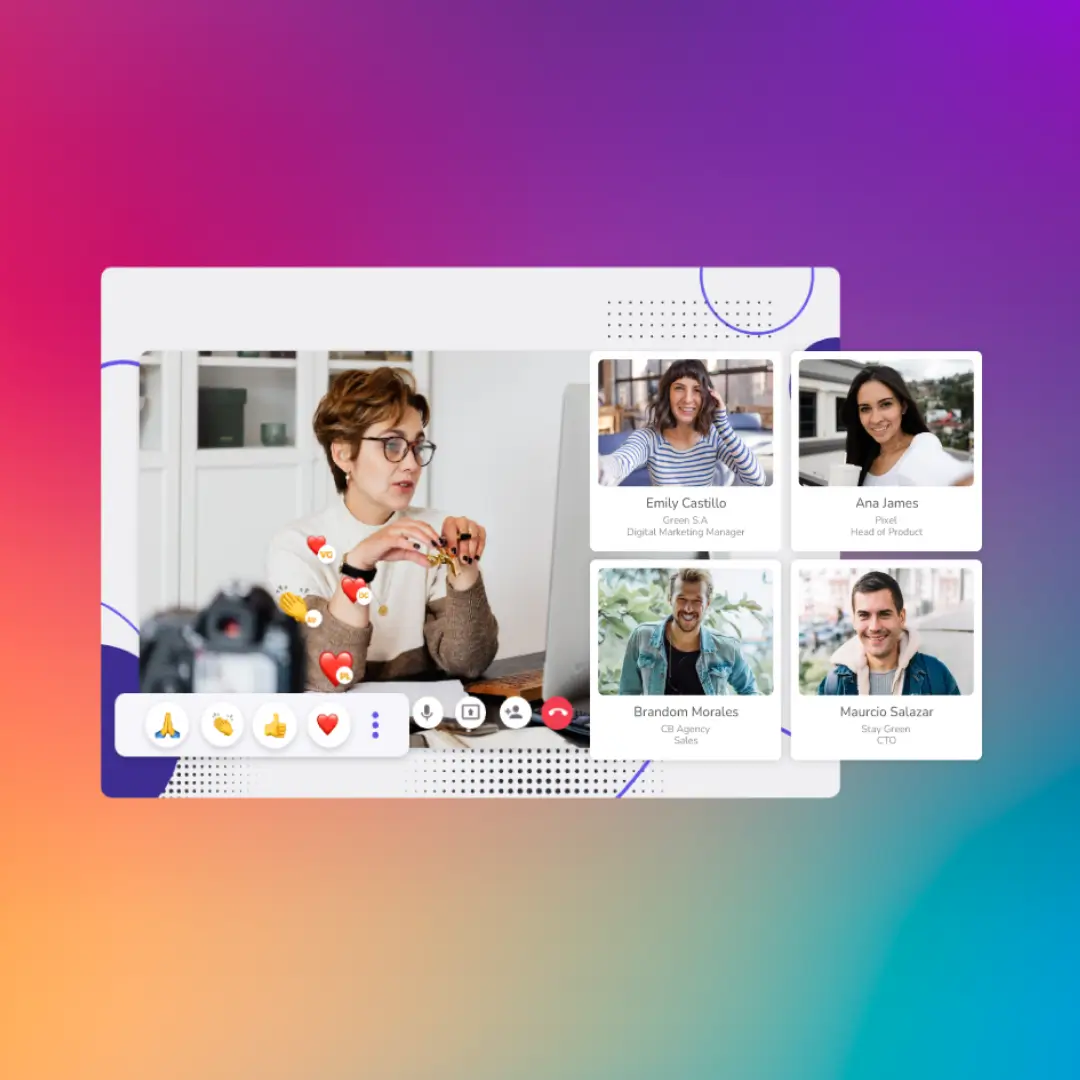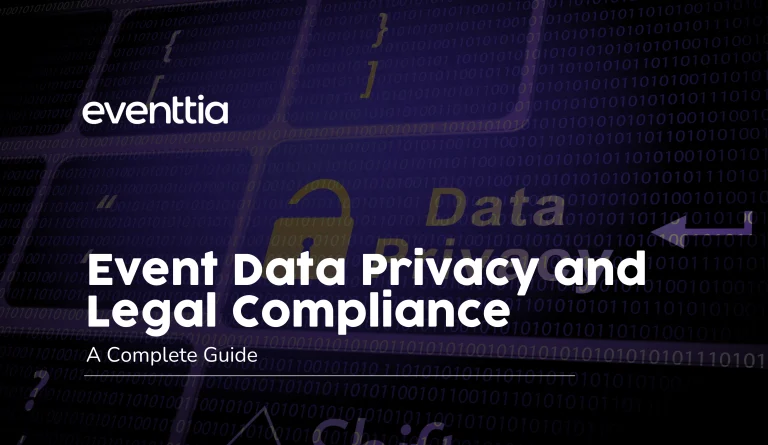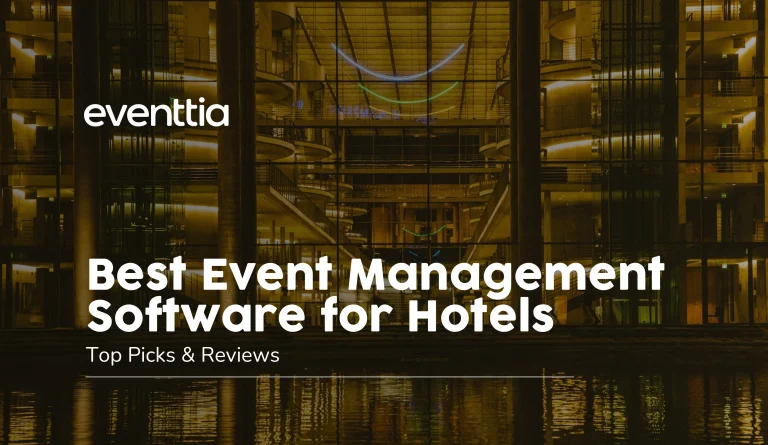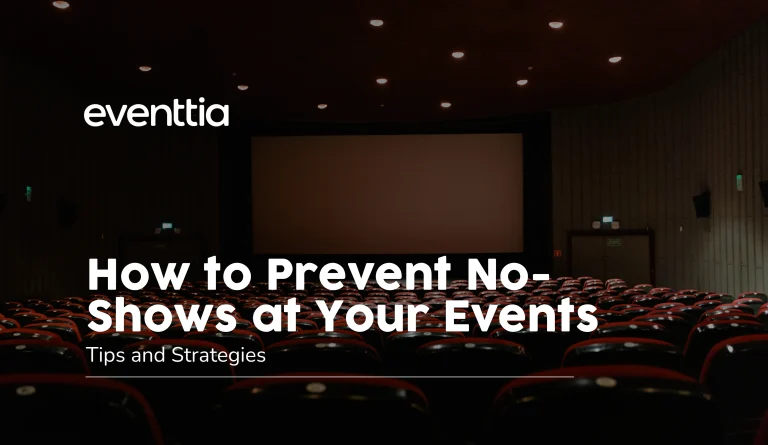When it comes to ticketing for events, it’s fair to say that Eventbrite is the go-to platform. In fact, given its huge popularity there’s a high chance that you’ve either hosted or attended an event on Eventbrite.
Last year the platform powered 4.7 million events in 180 countries selling a whopping 309 million tickets for events covering anything from music festivals to wine tasting and yoga classes. This is the number one event ticketing platform on the market but how does it fare with online events? Is it a viable option? Let’s take a detailed look to find out.
What is Eventbrite?
Eventbrite makes it easy to advertise an event, sell tickets and manage registrations. Launching an event on the platform is incredibly easy and can be done in three steps. First, add the event’s details, then create tickets, and finally the registration forms.
Once you’ve filled in all of the relevant information, your event will have its own page on Eventbrite’s website with the basic info, images, and a description. From there, attendees will have the option to register and possibly pay for a ticket. One of the main perks of Eventbrite is that it offers integration with programs like Facebook, HubSpot, and Mailchimp, making it easy to integrate into your marketing stack.
When it comes to pricing, Eventbrite charges 2.5% of the ticket price, and $0.99 per ticket, plus a 3.5% of the ticket price for the payment processing (if you use the Eventbrite payment gateway). There are no monthly charges, enrollment costs, or setup fees, for each registration. And the platform is free to use if you’re not charging for tickets.
What is Eventtia?
Eventtia is a cloud-based event management platform (online and physical) that makes planning and running events easy. With intelligent user interfaces and straightforward planning tools, Eventtia makes it easier to manage events with an all-in-one tool that covers each part of the event lifecycle. By giving marketers and companies more control of their online events, Eventtia helps them to promote their brand, interact with leads, and strengthen their community.
Features:
- Use website builders and email campaigns to communicate with your ideal audience.
- Create your event in a few clicks and then manage all of your logistics through one dashboard.
- Connect people and businesses with one-to-one, one-to-many, and many-to-many networking formats.
- Seamlessly integrate all of the major streaming and webinar tools into a virtual stage and connect with a worldwide audience.
- Scale your online events and make informed decisions with real-time data and analytics.
Eventtia vs. Eventbrite: The differences?
So now we’ve got a clear understanding of what Eventbrite and Eventtia both do as ticketing and event management platforms, respectively. Let’s take things a step further by comparing the key differences between the two.
Product differences
The first difference comes in what the platforms are designed to do. Eventbrite is a ticketing platform that makes it easy to advertise an event, sell tickets, and manage registrations. This is ideal if you’re looking to get off the ground by creating an event in the click of a few buttons.
On the other hand, Eventtia is an event management software that covers everything from A to Z in the event lifecycle. While Eventbrite focuses on ease of use and getting the basics right, Eventtia enables you to go further with additional features such as a virtual stage, website builders, and networking.
That’s why if you’re looking to run impactful events that deliver on the attendee experience then you’re better off going for a platform like Eventtia which gives you the tools to do just that. This gives you more flexibility with how you want to plan and manage events and means that you can go all out without having to scale things back.
You can’t build your own event from scratch
Leading on from the last point, another aspect worth mentioning is that with Eventbrite you won’t be able to build your event from scratch. Instead, you just have to fill out a few pages with basic info, details, and what you want to appear on the webpage, then you’re good to go.
There’s no denying the simplicity behind this, but as all event marketers should know, there’s a lot more to a virtual event then filling out a few pages. Any successful event needs to have a website, registration, post-event surveys, different attendee types, a virtual stage and so on. But with Eventbrite these things are either missing or scaled down.
So if you want to build your event from scratch and decide how you want it to be, you’ll need the help of some online event technology. From creating your own website and email campaigns through to setting a multi session program, a tool like Eventtia gives you all the tools to make it happen.
Lack of website and ticketing options
As we discussed, with Eventbrite you won’t be able to create your own website. What you’ll have instead is your own event page which is accessible on Eventbrite’s website. This can be good for advertising your event and making it accessible to a large audience, however, with limited branding you’re going to be restricted with how you want this to look.
Eventtia on the other hand, has its own website builder with different templates and features that make it easy to create well designed and informative websites. By being to create your own branded website you can decide on which elements you want to include on the website covering everything you’d expect from the agenda and speakers through to different registration types and B2B matchmaking.
Moreover, you also get to decide on the ticketing for your event. Eventtia offers integration with all of the main payment platforms including Stripe, PayU, Paypal, Wombi, Ingenico, and MercadoPago which can be embedded into the registration form on your event’s website. This gives you complete control over the ticketing and more importantly, the money that you generate form tickets goes directly to you. In contrast to this, Eventbrite acts as a third party taking a cut of ticket sales and then transferring you the money.
Attendee experience
Eventbrite is focused on the buildup to your event which translates to promoting your event and getting your attendees to register. When it comes to the event itself Eventbrite offers the option to create an ‘online-only event,’ which is a unique event page with links to webinars and live streams that is only accessible to ticket holders.
Compare this to Eventtia’s virtual stage and you’ll find that the attendee experience is definitely lacking. There’s no options for live chat, networking, or attendee profiles integrated into Eventbrite. Whereas with Eventtia, you have access to all of these features.
Attendees can choose the sessions that they want to attend along with the agenda so that they know what is going on and when. And the platform offers simultaneous sessions so customised schedules can be created for each attendee. When you combine all of the features, you give your attendees the complete event experience, offering more variety and more engagement.
Less insight into analytics
Another factor worth considering is that if you use Eventbrite to run your virtual event, your analytics are going to be focused on ticket sales. In fact, the event ticketing platform gives you four options you for analytics: sales, attendees, traffic, and the sales channel. For one, this isn’t going to give you the complete picture which can make planning future events more of a challenge than it needs to be.
In contrast to this, Eventtia offers its own reporting module, allowing you to track a wide range of data from across your event. From registration and financials through to website traffic and attendee engagement, all of this information gives you a clearer understanding of how your events are performing. Especially when it comes to measuring your ROI.
Limited branding opportunities
As event marketers, we know that powerful branding depends on consistency and providing attendees with a persistent message. Yet, if you’re running your virtual events on Eventbrite, your branding options are much more limited.
That’s because the only form of branding comes through your event page and emails which are still going to be branded by Eventbrite. For example, the event page gives you the option to add text, links, images and videos but at the end of the day this is still hosted on Eventbrite’s website. In the grand scheme of things, this offers very little to showcase what your brand is all about.
In contrast to this, Eventtia plays a big part in providing your events with uniformity. Factors such as having standardised websites, automated email campaigns, and a strong presence on social media go a long way in communicating your brand to attendees with a clear and consistent message.
Deciding what’s right for you?
This is a big question and the reality is that it all comes down to you and your needs. There is no one size fits all approach, and that’s why it’s worth asking yourself a few questions so that you can really identify what’s best for you.
- Am I looking for a ticketing solution or online event platform?
- Do my events need to cover more than just advertising it, selling tickets, and managing registrations?
- Do I need to have flexibility and control over elements like the website and ticketing?
- Would you rather Eventbrite take a cut of each ticket or pay for a platform like Eventtia and take all of the money from ticket sales?
- How important is the attendee experience? Do I need features like networking and live chat?
To summarise, Eventbrite is a tool to sell tickets or to register your attendees. Whereas Eventtia is an event management software that allows you to do all of the above, but also goes further by offering a place to host your event and create experiences for your attendees.
Discover how Eventtia helps world-leading brands digitize and scale their events
Learn more
Share













